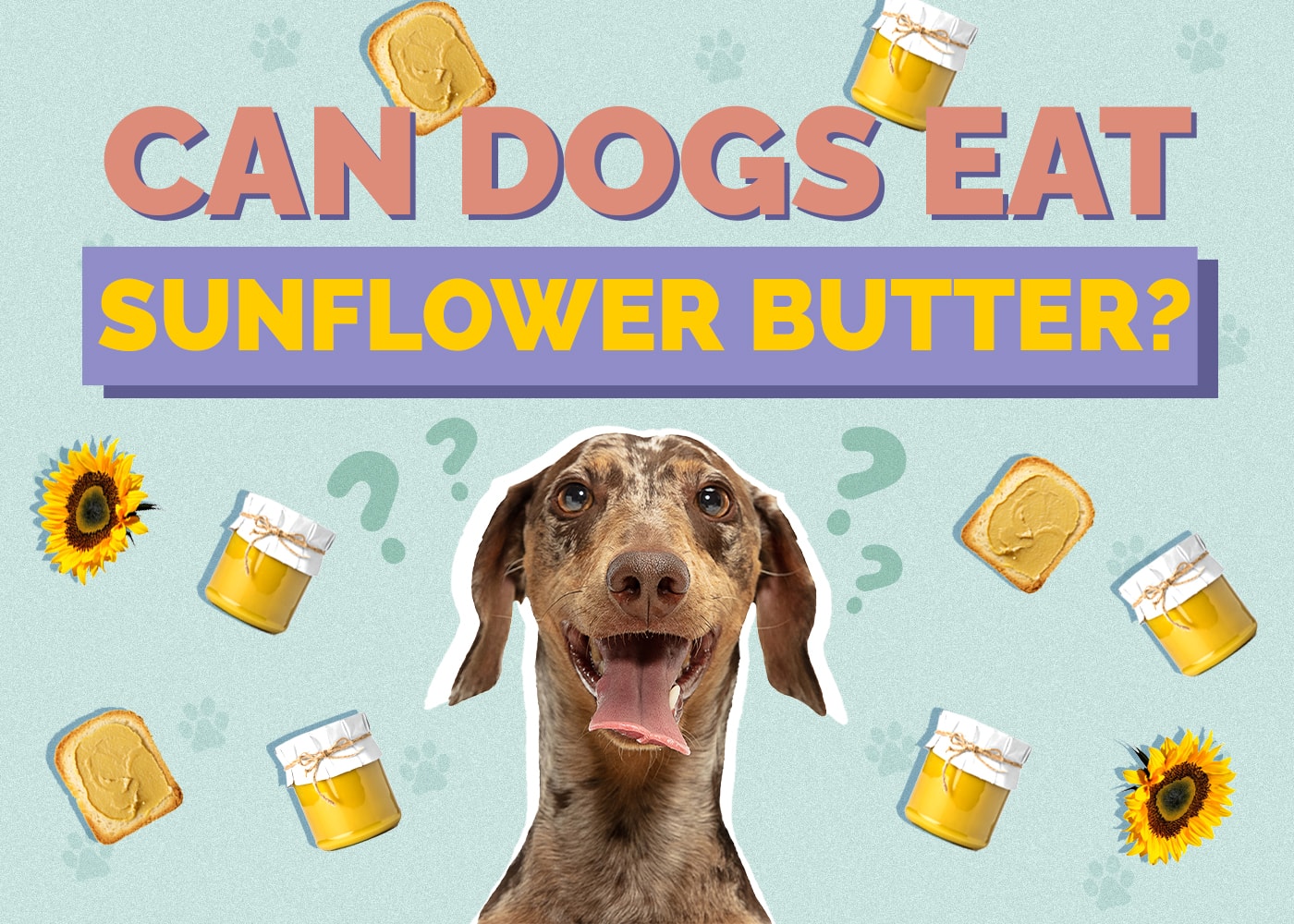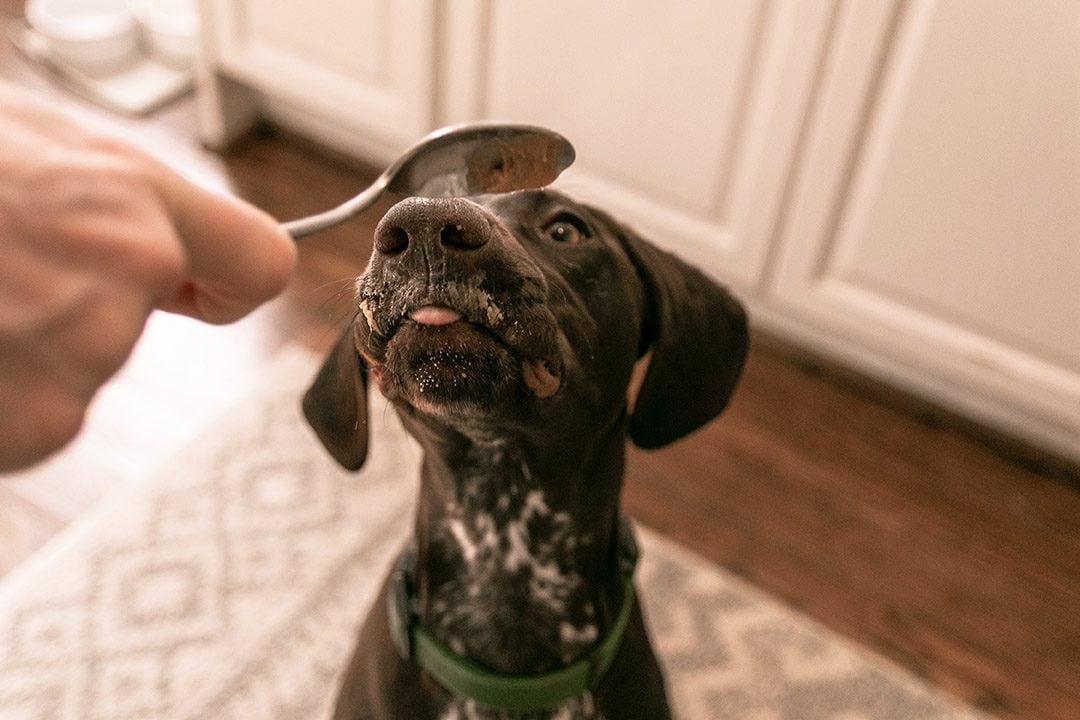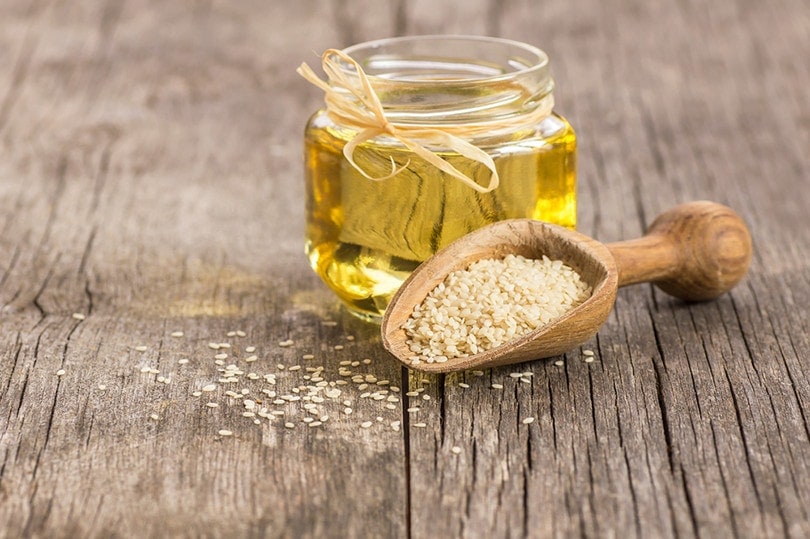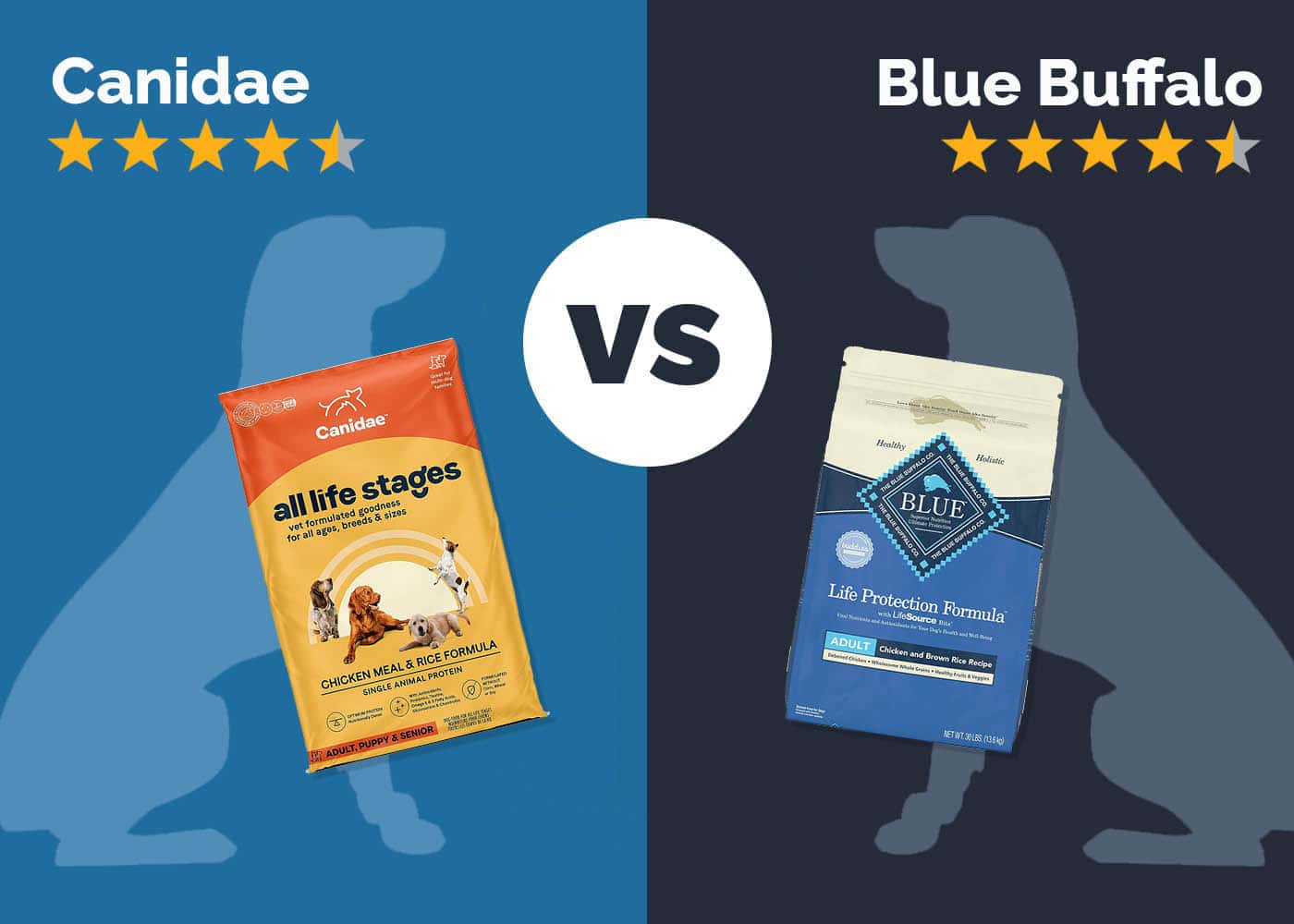Can Dogs Eat Sunflower Butter? Vet-Approved Health Review
By Jordyn Alger
Updated on

Click to Skip Ahead
Our dogs want to eat several human foods, but that doesn’t always mean that they should eat them. However, if your dog has been begging for a bite of sunflower butter, you will be relieved to know that it is perfectly safe for your pup.
Of course, as with anything, there are exceptions. There is a potentially dangerous ingredient found in some sunflower butters that would make them dangerous for your dog to eat. To learn more about the benefits and concerns of sunflower butter, keep reading below.
Benefits of Sunflower Butter
Sunflower butter is a great source of protein for your dog. To put it into context, just a ¼ cup of sunflower seeds has 5.5 grams of protein.
That’s not all. That same number of sunflower seeds also contains 3 grams of fiber and 14 grams of fat. Sunflower seeds are also packed with Vitamin E, B1, B3, and B6 and include healthy minerals such as copper, selenium, and manganese.
However, your dog’s regular food should provide him with all of these benefits and more. So, while sunflower butter is not likely to make drastic improvements to your dog’s health, in moderation it serves as a healthy and delicious treat.
It is recommended that you only feed your dog a single spoonful every once and a while. As you’ll see when we discuss the concerns of sunflower butter, there are consequences to overfeeding.
Concerns of Sunflower Butter

The main concern with sunflower butter is that it is high in fat. This alone is not necessarily an issue, as fat is a necessary component of a healthy dog’s diet. Feeding your dog a spoonful every once in a while is not likely to cause any. However, feeding him a spoonful or more every day is a different story.
Frequently consuming fatty foods can lead to health conditions in your dog, such as pancreatitis or obesity. Obesity can contribute to the development of many conditions such as arthritis, diabetes and heart disease. For your dog’s health, providing him with an appropriate amount of fat in his diet (from high-quality dog food) rather than going overboard is best.
Watch Out for Xylitol
When feeding your dog sunflower butter, there is one toxic ingredient that you must be aware of: xylitol. Xylitol is a sugar alcohol often used as a sweetener in food products. In products that are sugar-free or low-sugar, xylitol is usually an ingredient. While humans can process xylitol without problems, dogs cannot.
In dogs, xylitol can cause a massive insulin release from the pancreas due to its rapid absorption into the bloodstream. This results in a drastic drop in blood sugar that can occur as quickly as an hour after consumption. If treatment is not provided promptly, this decrease in blood sugar can quickly become fatal.

Signs of Xylitol Poisoning
- Vomiting
- Lethargy
- Lack of coordination
- Disorientation
- Tremors
- Seizures
- Collapse or loss of consciousness
- Coma
If your dog displays these signs or you suspect that your dog has eaten something with xylitol, take him to the vet immediately.
Protect Your Dog
Xylitol is not in all sunflower butter products, but knowing what you feed your dog is vital to its health. Before feeding anything new to your dog, check the ingredients and consult your vet.
Can Dogs Eat Sunflower Seeds?

If you want to skip the sunflower butter altogether and go straight to the sunflower seeds, you can feed them to your pup. Before serving them, examine these safety precautions.
- Only give your dog unsalted sunflower seeds. Salty snacks are not safe for dogs, and in excess, they can lead to salt toxicosis.
- Do not feed your dog sunflower seeds with shells. The shells are a choking hazard and cannot be digested by your dog’s gastrointestinal system. If consumed, they are liable to cause digestive upset and pain.
When fed occasionally, sunflower seeds are an excellent treat for your dog.
Conclusion
Sunflower butter is a healthy occasional treat for your dog and a great way to sneak medication into his mouth. Still, moderation is essential, and too much sunflower butter could contribute to health issues such as obesity. Likewise, you will need to be wary of xylitol, which is a life-threatening ingredient occasionally found in sunflower butter. Before feeding your dog anything new, consult your vet to ensure it is appropriate for your dog’s diet.














